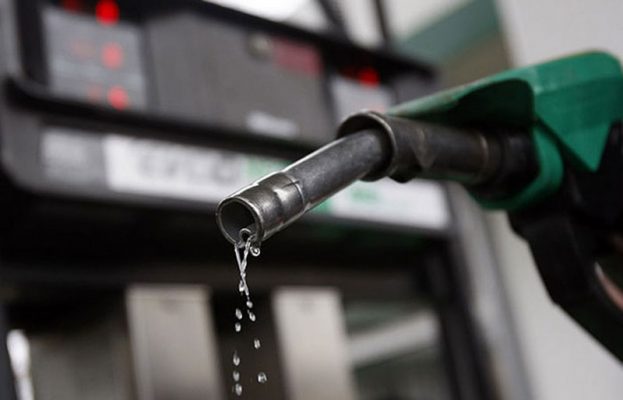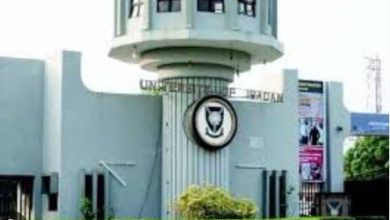
- The Federal Government on Wednesday said it was currently engaging oil marketers on issues bordering on the cost of Premium Motor Spirit, popularly called petrol, fuel queues, bridging claims payment, among others in the downstream oil sector. It was reliably gathered in Abuja that the meeting might lead to an upward adjustment in the pump price of petrol, as oil marketers had repeatedly blamed the persistent fuel queues in various parts of Nigeria on the unsustainable cost of PMS.
It was reliably gathered in Abuja that the meeting might lead to an upward adjustment in the pump price of petrol, as oil marketers had repeatedly blamed the persistent fuel queues in various parts of Nigeria on the unsustainable cost of PMS.
This came as the Major Oil Marketers Association of Nigeria on Wednesday joined their counterparts in the Independent Petroleum Marketers Association of Nigeria and the Natural Oil and Gas Suppliers Association to call on the government to gradually raise the price of PMS.
IPMAN and NOGASA had earlier pushed for the upward review of petrol price, as some members of IPMAN had already effected this by selling above the N165/litre government approved price.
Some of them currently dispense petrol at N180/litre and above in many states including Abuja, Lagos, Ogun, Imo, Niger, among others.
When informed on Wednesday about the demands of the various marketers groups, the General Manager, Corporate Communications Department, Nigerian Midstream and Downstream Regulatory Authority, Kimchi Apollo, told our correspondent that the government was currently engaging the oil dealers.
“We are meeting them now on the various concerns, so don’t worry. By tomorrow you will know what is the outcome,” he stated.
Apollo added, “The NMDPRA is engaging them in a meeting that is ongoing, so I’ll let you know the outcome. Hopefully by tomorrow you will know the outcome of the meeting.”
Asked if the meeting was being held with just MOMAN or all oil marketers, the NMDPRA spokesperson replied, “We cannot engage only MOMAN, we are engaging all of them. We are engaging them so don’t worry. You will know the outcome later.”
The sole importer of petrol into Nigeria – the Nigerian National Petroleum Company Limited, however, insisted that it was not a regulator of oil prices and would not comment on whether the cost of petroleum products would be raised on reduced soon.
“If you can call Shell and ask them for comments on petroleum products’ prices, then you can call us (NNPC) and ask us for such comments,” a senior official at the oil firm, who pleaded not to be named due to lack of authorisation, stated.
The source added, “We don’t have any kind of regulatory function in the sector, we are just operators now. It is the government that manages that. And based on the Petroleum Industry Act, we are no longer an appendage of government.
“The company is owned by Nigerians and the government is holding it in trust, but we don’t have any governmental role in terms of pricing, control or whatever. Although we are mandated to be the supplier of energy security, we are not a regulatory body.
“So we don’t control the price, we don’t regulate price, we have no control over any of those, as well as other similar issues.”
But the Secretary, Abuja-Suleja IPMAN, Mohammed Shuaibu, whose unit covers Abuja, Kogi, Niger and parts of Nasarawa and Kaduna, stated that though the association had informed the government about the issues in the sector, he was unaware of the meeting by the NMDPRA.
He reiterated that the cost of petrol was unsustainable at N165/litre, stressing that some filling stations in Abuja were currently dispensing the product at N185/litre, as they now purchased the commodity above N168/litre from depots.
Shuaibu also noted that the indebtedness of the government to marketers with respect to bridging claims must be settled, otherwise the strike by IPMAN members would hold soon.
“The cost of petrol at N165/litre is not sustainable. Bridging claims need to be settled and these are issues that should be addressed to avert the impending strike,” he stated.
These concerns came as the scarcity of petrol continued in Abuja and neighbouring Nasarawa and Niger states on Wednesday, as some filling stations shut their doors to customers, citing lack of products to dispense.
Subsidy removal demanded
Oil marketers called for gradual phasing out of fuel subsidy instead of a total deregulation following the current product scarcity being experienced across the globe.
The Chairman, MOMAN, Olumide Adeosun, made the call during a briefing with journalists on Wednesday.
According to him, the impact of the Russian/Ukraine war on businesses is “immense”, hence, the call on the federal government to gradually phase out subsidy to avoid “shock”.
“The effect of the Russian/Ukraine war cannot be compared to what we experienced during the covid. What we are seeing is that countries are beginning to close borders against importers and products are being reserved for their own citizens alone. So Nigeria is also being shut out,” he said.
Speaking further, Adeosun said the Nigerian government has ran the subsidy regime for too long, adding that the huge fund reserved for subsidy should be diverted into growing other sectors such as Agriculture, health, education and others.
“The Federal Government has allowed subsidy for too long and we haven’t saved for the raining days. The subsidy keeps increasing to the tune of N4 trillion. Such money would have been invested into Agriculture, health, education and others”
The Senate had in April approved N4trn for fuel subsidy in 2022 following two separate requests by the Nigerian president to the National Assembly.
The MOMAN chairman further said selling petrol at N165 per litre is no longer sustainable due to the rising costs of diesel.
Findings showed that price of diesel had increased from N266/litre in October 2021 to above N800/litre currently.
“MOMAN is not short of empathy for Nigerians at this time. The association is pro-business, pro-progress and pro-human.
“We, therefore, stand for phased deregulation of the downstream sector because we don’t want subsidy to be removed all of a sudden in order not to throw the masses into shock. We can no longer sell petrol at N165 because diesel is what we use in our operations. We use diesel to power our trucks, run our stations and depots, and as we all know, price of diesel keeps rising.
“The options we have now is to either save our businesses by shutting it down, or that the government should allow a gradual phasing out of subsidy by allowing price increase gradually.
“It is better to have products at a slightly increased price than not have products at all. The money for subsidy should be injected into another sector. No government can make the current crisis go away because it is a global one, and we all have to adjust,” he said.
Also recently, the Minister of State for Petroleum Resources, Timipre Sylva, described the controversial subsidy regime as “a criminal enterprise.”
A source in the know had told The PRESS that oil marketers and the, Nigerian Midstream and Downstream Petroleum Regulatory Authority also known as The Authority, had last week, secretly agreed to slightly increase price from N165/litre to between N175-N180/ltr.
Just retired Group Chairman/CEO of International Energy Services Limited, and a PhD holder in Petroleum Process Economics from the University of Ibadan, Dr. Diran Fawibe, said the fuel supply crisis had become like a Pandora’s box which had defiled all solutions.
The Chief Executive Officer of Centre for the Promotion of Private Enterprise, CPPE, and former Director General, Lagos Chamber of Commerce and Industry, LCCI, Muda Yusuf, told The PUNCH that the current price is not sustainable.
Gas supply debts
Meanwhile, the Nigerian Gas Association has called on the Federal Government to clear the legacy gas supply debts in the power sector, describing it as an impediment to progress.
The President of the association, Ed Ubong, made the call in a press statement sent to The PUNCH on Wednesday.
According to Ubong, as soon as the government cleared the backlog of debts, only then could it hold private stakeholders accountable for promises made to bolster the sector with more gas supply.
Ubong noted that while members of NGA in tandem with the government were seeking innovative solutions for the sector, end-users also needed to adopt gas as a viable and clean source of energy during the decade of gas.
He further asked the government to institutionalise gas-powered generator usage for federal and private parastatals that use generators of more than 250KVA capacity.
Hike hits Kano
Meanwhile, fuel marketers in Kano on Wednesday arbitrarily hiked their prices from the regulated price of N165 per litre to between N200 and N220 at different outlets in the metropolitan city.
Prior to the development, motorists in the city had been experiencing fuel shortages at filling stations, which had lingered for the past two months.
Our correspondent visited some filling stations on Wednesday and discovered that some outlets on Airport road, as well Paniso and Bompai areas had commenced the sale of petrol to motorists at prices ranging from N200 and N220.
However, at A.A Rano filling station, on Bompai road by Central Hotel roundabout and Aliko petrol station, at Paniso by Jaba, the product was sold for N185 per litre.
During a chat with a fuel attendant at A. A. Rano, who declined to have his name in print, it was confirmed to our correspondent that the price was hiked since Tuesday.
Also, at Amkar petrol station on Airport road, the product sold for N220 per litre. The attendant at this filling station said the price increased to N220 last week.
A motorist interviewed at Amkar petrol station on Airport road, Ibrahim Baba, decried the hike, stressing that the government had insisted that the price would be pegged at N165 per litre.
“It is so sad that I can only afford 15 litres of fuel at this price of N220 and surprisingly the NNPC has been advising motorists against engaging in panic buying and that the price remains N165 per litre,” he said.



